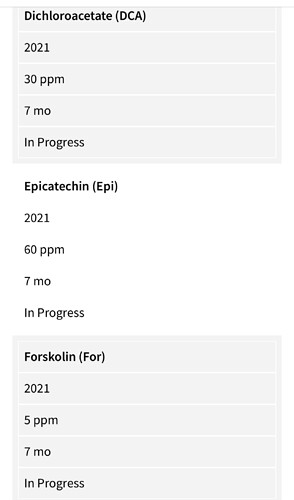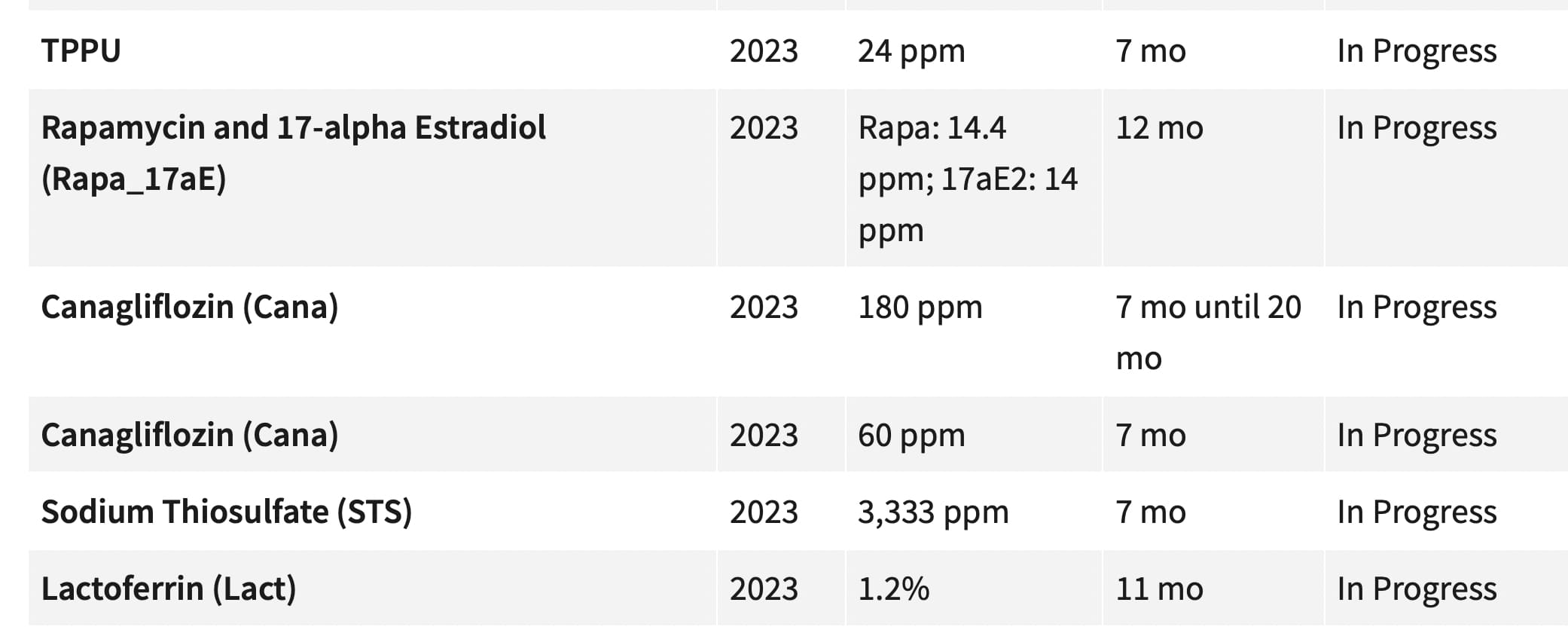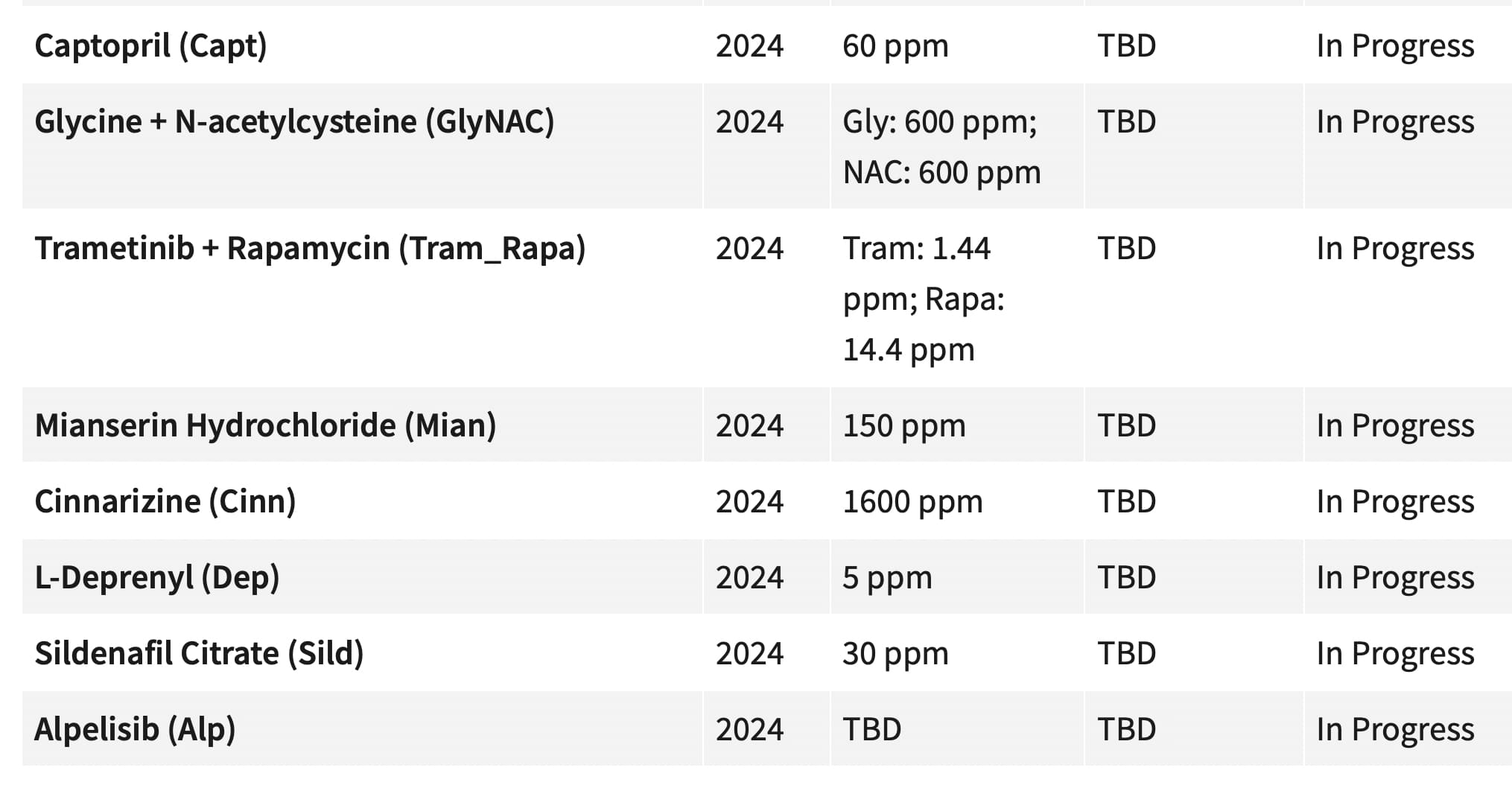I took a look at the ITP website and the last studies I see are tagged as 2021. What did they start testing in 2022, and when will we find out about 2023?
ITP and GlyNAC will be tested in the ITP 2024 Cohort. As well as Trametinib + Rapamycin .
Glycine + N-acetylcysteine (GlyNAC) Gly: 600 ppm; NAC: 600 ppm
Trametinib + Rapamycin (Tram_Rapa), Tram: 1.44 ppm; Rapa: 14.4 ppm
These two combinations will be really interesting to get results from.
I am looking forward to the results from the 2021 cohort. Especially Epicatechin in wild type mice. The effect on skeletal muscles is interesting in itself. But now the jury it out there and soon to deliver its verdict on Epicatechin in wild type mice.
“Epicatechin supplementation increases survival of aged mice. To determine the effects of epicatechin on life span, 20 mo old C57BL/6 male mice fed the standard diet were provided with epicatechin or EGCG dissolved in drinking water (0.25% w/v) for 37–44 wk. We observed that old mice given epicatechin intake had a strikingly higher survival rate (69%) compared with the OC mice (39%) after 37 wk of treatment (Fig. 1A). In total, 44% of mice were still alive in the EC group after 7 additional wk of epicatechin treatment. However, EGCG supplementation had no significant antiaging effect.”
SkM = skeletal muscle
“There has been considerable interest in identifying natural compounds that have the capacity to promote health and extend life span. Polyphenolic compounds, including resveratrol (25), green tea extract and its major bioactive component EGCG (26), curcumin (27), and quercetin (28), have been shown to extend life span in various model organisms such as yeast, roundworms, fruit flies, and obese mice. The National Institute on Aging Interventions Testing Program, however, reported that the natural compounds that presumably have potential to exert life-extension effects, including resveratrol, green tea extract, curcumin, oxaloacetic acid, and medium-chain triglyceride oil, all failed to extend life span in standard diet–fed lean mice (7). This outcome suggests that those previously identified antiaging compounds exert an antiaging effect only under certain pathologic conditions such as obesity and metabolic syndrome induced by long-term feeding of a high-fat diet. In the present study, we present 4 lines of evidence (survival rate, gene/and protein expression and pathology in SkM, and serum metabolites) showing that epicatechin supplementation exerts antiaging effects in aged lean mice fed a standard diet. Hence, the present study is important in antiaging research of natural compounds because epicatechin exerted its antiaging effects in normal aging mice without manipulation of their diet. In line with improved health and prolonged life span, epicatechin intake improved aging-induced SkM degeneration and reversed aging-altered SkM mRNA and protein expression of several key components of the ECM and PPAR pathways, as well as the serum metabolomic profiles and the NAD pathway in old mice. Moreover, EGCG, the major bioactive compound of green tea, did not significantly increase the survival rate in aging mice in this study”


